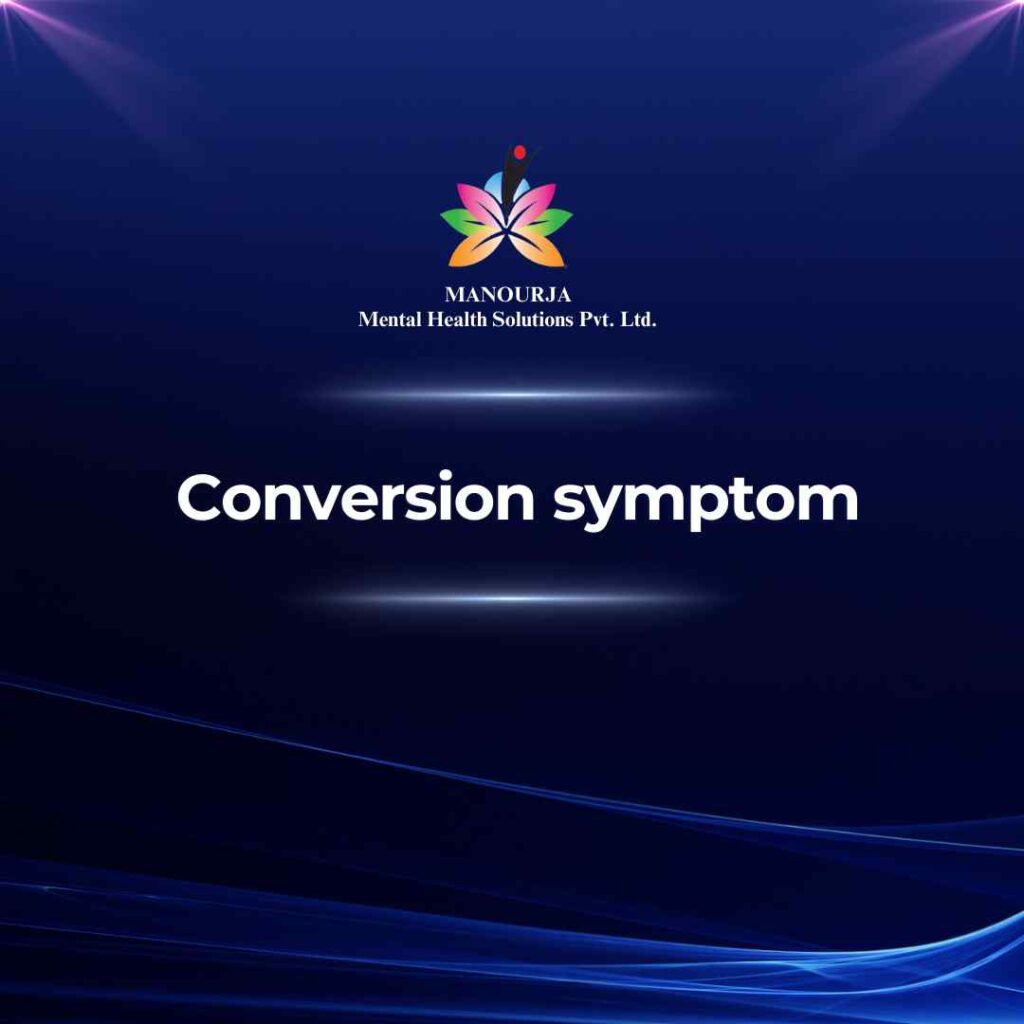Conversion Symptoms

Conversion symptoms, also known as functional neurological symptoms or conversion disorder, refer to the manifestation of neurological-like symptoms that cannot be explained by underlying medical conditions or pathophysiological mechanisms. These symptoms often resemble those of neurological disorders but lack identifiable organic causes. Conversion symptoms are believed to arise from psychological distress or unresolved emotional conflicts, leading to the conversion of psychological distress into physical symptoms.
Conversion Symptoms as Signs of Mental Illness
Conversion symptoms are considered psychosomatic in nature, reflecting the interplay between psychological factors and physical manifestations. They are typically associated with underlying mental health conditions, particularly those involving significant psychological distress, trauma, or maladaptive coping mechanisms. While conversion symptoms may mimic neurological disorders, they are distinct in their etiology and require a comprehensive psychosocial assessment.
Mental Health Conditions Associated with Conversion Symptoms
- Conversion disorder is characterized by the presence of one or more conversion symptoms affecting voluntary motor or sensory functions, such as paralysis, tremors, sensory loss, or seizures. These symptoms are not intentionally produced and cannot be fully explained by medical or neurological conditions.
Posttraumatic Stress Disorder (PTSD):
- Conversion symptoms may occur in individuals with PTSD as a manifestation of unresolved trauma or emotional distress. Symptoms such as pseudoseizures or functional paralysis may emerge as maladaptive coping mechanisms in response to traumatic experiences.
Somatization Disorder:
- Somatization disorder is characterized by the chronic presence of multiple physical symptoms across various organ systems, often without discernible medical explanations. Conversion symptoms may be a component of somatization disorder, reflecting the individual’s tendency to express psychological distress through bodily complaints.
- Conversion symptoms can arise in individuals with anxiety disorders, particularly in the context of panic attacks or acute stress reactions. Symptoms such as functional paralysis or non-epileptic seizures may occur during periods of heightened anxiety or emotional arousal.
- Conversion symptoms may occur in individuals with depressive disorders, where they serve as somatic expressions of underlying emotional distress or psychosocial stressors. Symptoms such as motor weakness or blindness may be present in severe cases of depression.
Borderline Personality Disorder (BPD):
- Individuals with BPD may experience conversion symptoms as a manifestation of identity disturbances, emotional dysregulation, or interpersonal difficulties. Symptoms such as pseudoneurological complaints or dissociative episodes may emerge in response to perceived threats to self-esteem or relationships.
Conversion symptoms require careful assessment by mental health professionals to differentiate them from organic neurological conditions and to address underlying psychological factors contributing to their presentation. Treatment approaches may involve psychotherapy, cognitive-behavioral interventions, stress management techniques, and supportive care aimed at resolving underlying emotional conflicts and promoting adaptive coping strategies. Early recognition and intervention are essential for minimizing functional impairment and improving overall well-being.
At MANOURJA, we believe in the transformative power of counseling. Our experienced therapists offer a safe and supportive space where you can explore your thoughts, emotions, and challenges. Through personalized counselling sessions, we’ll work together to develop coping strategies, build resilience, and achieve lasting positive change. Discover the path to a healthier, happier you with MANOURJA counselling services.
MANOURJA Rehabilitation Services
At MANOURJA, we’re dedicated to helping you in rebuild your life, after difficult times. Our rehabilitation services focus on understanding what you need to move forward, whether you’re recovering from addiction, trauma, or any psychological – social challenges. We create personalized plans, that are all about helping you, regain your strength and find hope again. With a caring team by your side, you’ll have the support to make real progress and take steps toward a brighter, healthier future.
